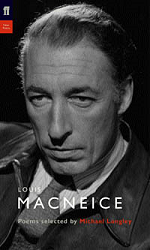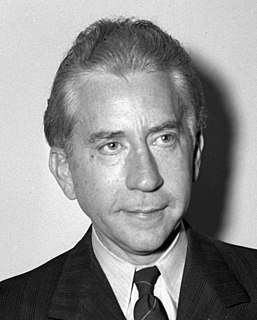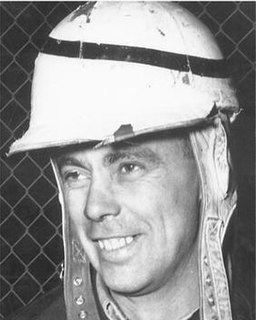A Quote by Thomas B. Macaulay
The business of the dramatist is to keep himself out of sight, and to let nothing appear but his characters. As soon as he attracts notice to his personal feelings, the illusion is broken.
Related Quotes
A man's character is like his house. If he tears boards off his house and burns them to keep himself warm and comfortable, his house soon becomes a ruin. If he tells lies to be able to do the things he shouldn't do but wants to, his character will soon become a ruin. A man with a ruined character is a shame on the face of the earth.
If a person is cold and rigid, he feels within himself as if he were in a grave. He is not living, he cannot enjoy this life for he cannot express himself and he cannot see the light and life outside. What keeps man from developing the heart quality? His exacting attitude. He wants to make a business of love. He says, 'If you will love me, I will love you.' As soon as a man measures and weighs his favors and his services and all that he does for one whom he loves, he ceases to know what love is. Love sees the beloved and nothing else.
It is true that the path of human destiny cannot but appal him who surveys a section of it. But he will do well to keep his small personal commentarie to himself, as one does at the sight of the sea or of majestic mountains, unless he knows himself to be called and gifted to give them expression in artistic or prophetic form. In most other cases, the voluminous talk about intuition does nothing but conceal a lack of perspective toward the object, which merits the same judgement as a similar lack of perspective toward men.
One of man's important mistakes, one which must be remembered, is his illusion in regard to his I. Man such as we know him, the 'man-machine,' the man who cannot 'do,' and with whom and through whom everything 'happens,' cannot have a permanent and single I. His I changes as quickly as his thoughts, feelings and moods, and he makes a profound mistake in considering himself always one and the same person; in reality he is always a different person, not the one he was a moment ago.
Each man lives for himself, uses his freedom to achieve his personal goals, and feels with his whole being that right now he can or cannot do such-and-such an action; but as soon as he does it, this action, committed at a certain moment in time, becomes irreversible, and makes itself the property of history, in which is has not a free but a predestined significance.
He had thrown himself away, he had lost interest in everything, and life, falling in with his feelings, had demanded nothing of him. He had lived as an outsider, an idler and onlooker, well liked in his young manhood, alone in his illness and advancing years. Seized with weariness, he sat down on the wall, and the river murmured darkly in his thoughts.


































